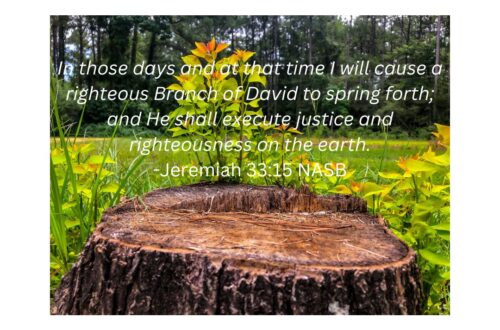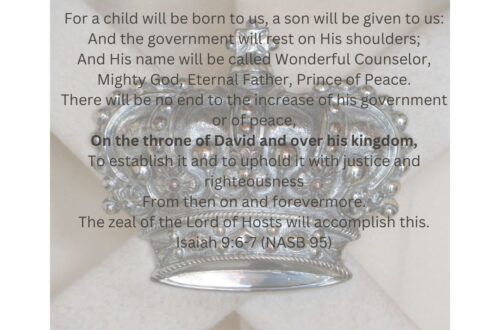
An ancestry.com dumpster fire – Part 5
Now if you do a Bible-in-a-year reading plan, when you get to 1 Chronicles, you probably do quite a bit of skimming. I know I do. Names, names, names.
“I’ll take Jewish genealogy for $1000, Alex.”
“Ding – Father of Gera”
“Buzz – Who is Bela?”
“That’s right!” (I Chron 8:3)
No, you’re not going to see that as a Jeopardy clue. But you think we like to poke around and dig up secrets on ancestry.com? The Jews knew their ancestry. Take a look at the first 9 chapters of 1 Chronicles. 9 chapters of names. It’s all genealogy, from Adam – the first man, to Abraham, to Jacob, and then his sons. The chronicler traces all twelve tribes in meticulous detail from creation to the return from exile under the Persian Empire.
Why?
Although the chronicler is not named, tradition says Ezra wrote it, and it’s generally accepted that it was completed by 400 BC. So what was going on during Ezra’s lifetime? Why did he spend so much parchment on names?
History from 30,000 feet: After a 70 year exile, the Jews in Babylon could return their homeland. So everyone left and picked up their lives in Israel again? Not hardly. The temple was destroyed. The city was burned by fire. The wall around it, both physical and psychological, was gone. By the time Ezra arrived in Jerusalem around 458 BC, the city was a mess. 150 years after King Nebuchadnezzar took the Israelites into exile, they had all but lost their identity. Many of those returning to the land intermarried with the Canaanites and adopted their ways. When Ezra read the Law, the scribes had to translate it for the people to understand – they no longer spoke Hebrew. What did it mean to be a Jew?
To put this in perspective, imagine if in the 1870s the United States had been devastated by war. The survivors are taken captive to, say, South America. The remnant settles in and makes the best of things in the jungle empire of Amazonia. They’re holding on to a promise that one day they’ll get to go back to North America. In the meantime, though, they pick up the native culture and language. Finally, they’re given permission to return home. A handful goes back and starts to rebuild. It’s a tough road, though. Beset by enemies, they’re unwelcome in their homeland. Amazonian has become their native language. They can’t even understand the Constitution, the law of the land, because it’s written in English. Their cultural identity is gone.
That’s the situation Ezra found himself in. In recording such a detailed genealogy, I think Ezra wanted to remind the people who and whose they were. He pays particular attention to his recent history, so we’ve got detailed information on Jeconiah’s descendants.
“This is what the LORD says:
‘Write this man down as childless,
A man who will not prosper in his days;
For no man among his descendants will prosper
Sitting on the throne of David
Or ruling again in Judah.’” Jeremiah 22:30
We’ve looked at this verse before. The Lord says to write Jeconiah down as childless because none of his male descendants will prosper. Not for lack of effort on Jeconiah’s part! I Chronicles lists seven sons. And yet, none of his descendants sat on David’s throne.
Now we’ll set the stage for the dumpster fire, the tangled mess of the Davidic line. Buckle up. It’s about to get confusing.
Matthew’s genealogy through Solomon’s line and Luke’s genealogy through Nathan’s line converge in the middle. Wait, what?

If your eyes are crossing, skip down to the TLDR summary below.
Both Matthew and Luke list Shealtiel and Zerubbabel in Jesus’s ancestry. We could suppose that it’s a coincidence, that Shealtiel and Zerubbabel were common names in the post exile period. That they’re not the same men. But that supposed coincidence looks like the kind of flashing neon sign God gives us saying, “Dig a little deeper.” The legal line of Matthew lists Shealtiel as Jeconiah’s heir. What does Luke say? The mystery man Neri is Shealtiel’s father. I believe Shealtiel must have come from a levirate marriage. A well-known example of this is Ruth and Boaz. For further study, I’ve linked to an article on levirate marriage.
And then it gets even stranger. Zerubabbel is Shealtiel’s heir, but 1 Chronicles says Shealtiel’s brother Pedaiah is Zerubbabel’s father. Again, the simplest explanation is levirate marriage.
And then, 1 Chronicles lists Zerubbabel’s children, yet those Matthew and Luke record aren’t mentioned. Perhaps they’re nicknames?
Try putting all that in an Excel spreadsheet.
TLDR: I think the Lord intentionally scrambled Jeconiah’s legacy. But in Matthew’s and Luke’s accounts we see confirmation that Jesus had the legal right and the bloodline to sit on David’s throne. God keeps his promises. In the next installment, we’ll set aside the confusion and enjoy a beautiful story of redemption.





